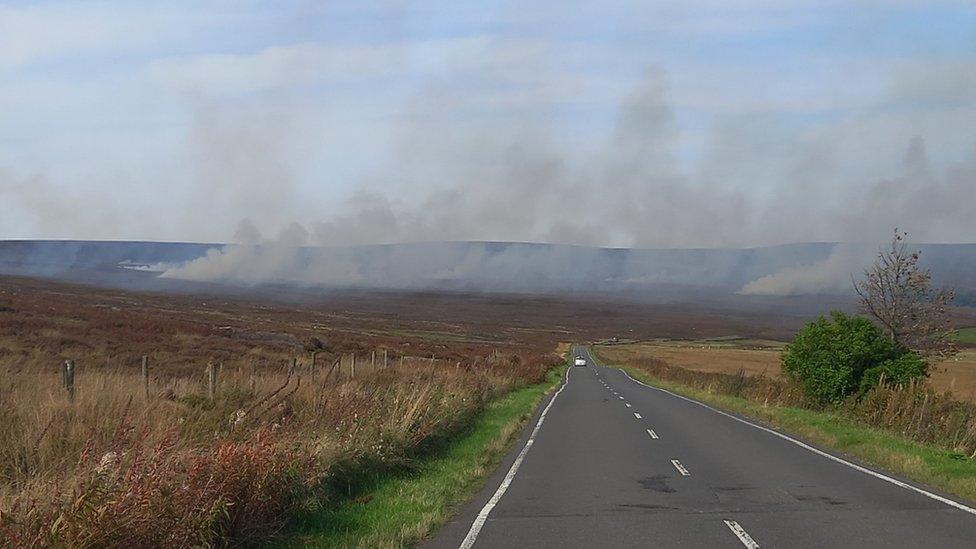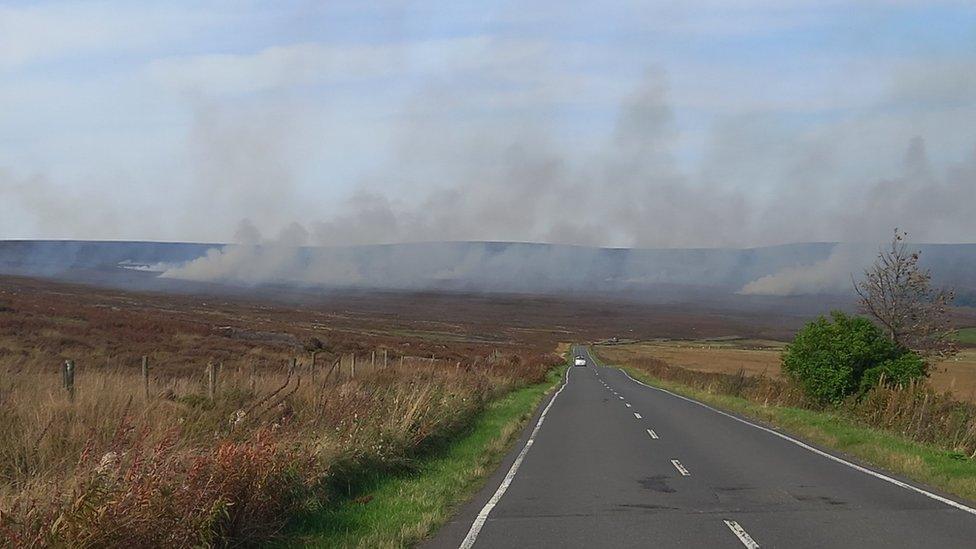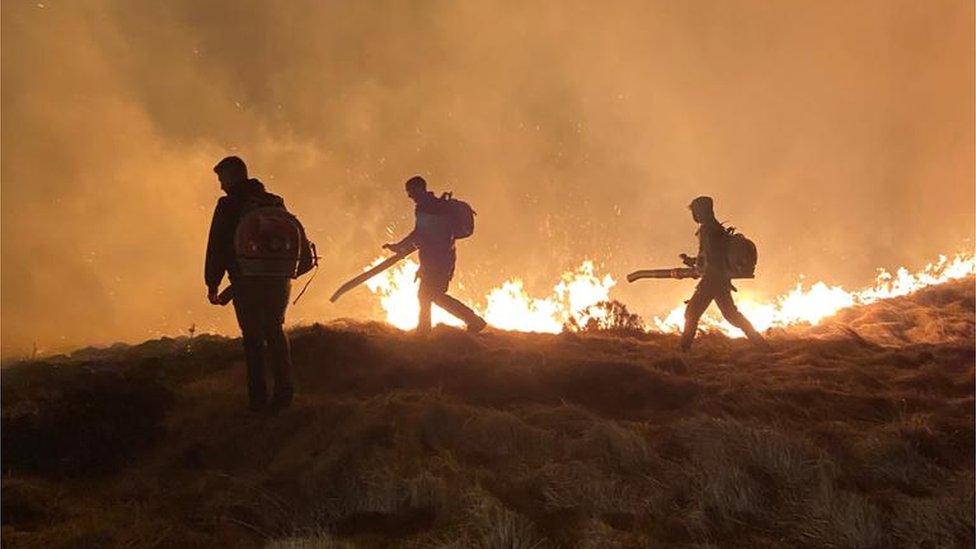Sheffield City Council leader calls for ban on moorland burning
- Published
- comments

Controlled burning has prompted concerns about air quality and wildlife
A council leader has called for a ban on controlled moorland burning due to the impact it has on hospital admissions and A&E attendances.
Sheffield City Council's Tom Hunt has written to the government after recent incidents saw the city blanketed in smoke from burning on the moors.
He has asked for legislation to outlaw the practice, saying it also destroys biodiversity and increases flood risk.
The Moorland Association said the practice reduced the risk of wildfires.
Mr Hunt said the council had limited powers to intervene on the issue.
He said the authority received many complaints from residents every year over the burning, which takes place between October and April.
"The government has mandated many cities, Sheffield included, to take significant action to improve air quality. We are taking this action," he said.
"We all know that air pollution kills and that air pollution from fires has an immediate impact on hospital admissions and A&E attendances."

Tom Hunt said councils have limited power to intervene on the issue
In his letter to Environment Secretary Steve Barclay, Mr Hunt said the council had received reports from people with asthma and breathing difficulties whose said their condition had been made worse by moorland burning.
Mr Hunt added: "The moors surrounding Sheffield and across swathes of the Pennines are internationally important for their biodiversity and need protection.
"There is no argument for burning on grounds of biodiversity gain that is based on science."
The Moorland Association, which represents grouse moor owners, said the practice played a key role in reducing the likelihood of wildfires, which caused "mass devastation" to habitats and wildlife.
An association spokeswoman said on Wednesday: "In October, smoke from controlled burns on moors close to Sheffield did regrettably cause an issue for local residents as a result of a rare combination of circumstances, including unexpected changes in the direction of the wind.
"When it was clear there was an issue, all burning was stopped. Land managers make every effort to avoid such incidents," she said.
Scientific research also found that controlled burning had benefits for carbon capture, biodiversity and water storage, she added.

Follow BBC Yorkshire on Facebook, external, X (formerly Twitter), external and Instagram, external. Send your story ideas to yorkslincs.news@bbc.co.uk, external.
Related topics
- Published9 October 2023

- Published10 May 2023

- Published28 June 2018

- Published17 May 2022
